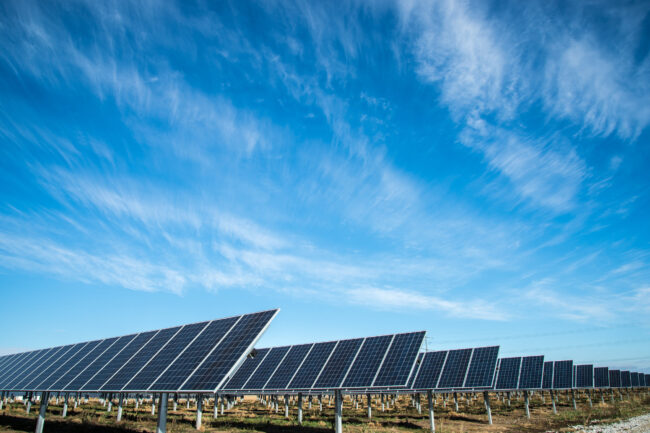The generation of electricity from solar energy on an industrial scale does not surprise anyone anymore. After all, every year the number of such projects increases several times. According to SEIA, in 2022, 39% of all capacity added to the electric grid in the United States will be generated by solar systems. This means that the share of such technologies is growing noticeably.
In particular, this trend became possible thanks to the active implementation of solutions by business representatives. For many entrepreneurs, solar systems have become an important step towards greening and ensuring an uninterrupted power supply of processes. However, harnessing the sun’s renewable energy comes with not only opportunities but also some challenges. We suggest you learn about it in more detail.
What Are the Benefits of Using Solar Energy for Business?

When considering the business potential of solar systems, it is worth pointing out 2 aspects: environmental and financial. It is they who become decisive for many enterprises that switch to the use of alternative energy. The fact is that the electricity demand is constantly increasing, and at the same time the prices for oil and other traditional sources are increasing.
In addition, renewable energy is the main way to move to the concept of caring for the environment. It is important that among all types of alternative sources, solar radiation is the most promising. The reason is the stability and reliability of this type of energy because sunlight hits the earth’s surface every day. However, several other advantages encourage enterprises to switch to such technologies.
Increasing the Stability and Productivity of the Power Grid
When considering solar business opportunities, it is worth starting with improving the situation in the energy system. This aspect is explained very simply. Companies that install solar systems are no longer dependent on the voltage level of the general grid. That is, the occurrence of various failures and power outages by local utility service providers will not affect the company’s network in any way.
After all, they have additional and stable support in the form of solar panels. In the absence of electricity, these installations provide backup power. Thus, business processes are not interrupted, and the company avoids downtime. Accordingly, there is no lost benefit. In addition, companies can install solar systems with a level of power that is sufficient to fully meet the needs of electricity.
However, solar companies warn that in case of interruptions in the general network, it is worth turning off the solar systems. This is because they can give excess back into the system, which can lead to problems. Under such conditions, the issue of using backup batteries becomes relevant.
In this case, it is possible to configure the system as a separate microgrid that provides energy only to the company. An additional advantage of using a backup battery is the ability to accumulate and for some time store electricity from solar panels. Under this scheme, commercial capacity will always be maintained at the level necessary to meet the company’s needs.
Reducing the Negative Impact on the Environment
Preservation of the environment has become one of the most urgent issues at the global level. Therefore, the transition to the use of renewable solar energy becomes for every business an important step on the way to achieving this goal. Solar systems are a full-fledged ecological replacement for traditional sources of electricity.
Their installation contributes to a significant reduction in the consumption of fuel materials, oil, and other substances that pollute the environment. Accordingly, the number of emissions, including harmful greenhouse gases, decreases. It is worth adding that the installation of solar systems for powering business processes is not only a significant contribution to the environmental policy but also an image improvement. After all, such decisions always cause positive reactions from customers.
No Need for Maintenance

The aspect of system maintenance is rather essential for business because it also requires the costs and efforts of specialists. Installations with solar panels are quite profitable in this context. Modern manufacturers use innovative technologies and reliable materials for their production. High manufacturing quality and compliance with standards are confirmed by an extremely long warranty.
Its term can reach from 20 to 40 years. The average value is about 25 years. In addition, the installations do not require periodic intervention by a specialist. They are configured during installation and in most cases work in this mode for many years. The owner only needs to ensure high-quality cleaning of the panels.
Return on Investment in Solar Systems
Solar panel business opportunities are also profitable investments. This is a factor that is important for every business because profitability and success depend on it. By choosing to use solar energy, companies spend a fairly large amount of money, but with the prospect of payback. This means that by investing in the installations once, they will be able to quickly return these funds and even get additional profit.
Savings and Financial Benefits
Separately, it is worth considering the financial aspect of using the business opportunities of solar panels. It provides several benefits. The first of them concerns the reduction of payment for communal services. After all, instead of constant power from the general network, the company uses free renewable energy. In addition, by returning excess solar electricity to the grid, it can receive financial compensation.
What Are the Challenges Facing the Solar Energy Industry?

Solar radiation is undoubtedly one of the best ecological sources for electricity production. However, there are still some challenges of solar energy. These are certain problems that are associated with the use and manufacture of such sources. One of them is the efficiency of installations. Modern systems can only work for 12 hours during the day when the sun’s rays reach the earth’s surface.
At other times, they do not generate electricity. The specified solar power issues are already being solved by experts. One of the ideas aimed at increasing efficiency is the design of rotary mechanisms. Panels equipped with these components follow the sun to extend peak hours of electricity production. Additional solar energy challenges are the development of large areas of land.
This leads to the fact that animals and plants lose their habitat. This problem is currently also being gradually solved at the international level. For this, engineers are trying to create technologies that will significantly increase the efficiency of solar panels. Thanks to this, it is possible to reduce the area with solar systems and produce the same or greater amount of electricity.
Conclusions

Solar energy is an important source of electricity for every business. It opens up many opportunities and provides many advantages. Of course, there are also challenges and some controversial issues. However, engineers and scientists are actively working on improving the systems.
